Search
Search Results
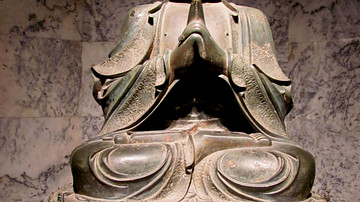
Definition
Esoteric Buddhism
Esoteric Buddhism is the mystical interpretation and practice of the belief system founded by the Buddha (known as Sakyamuni Buddha, l. c. 563 - c. 483 BCE). It is known by several names and is characterized by a personal relationship with...
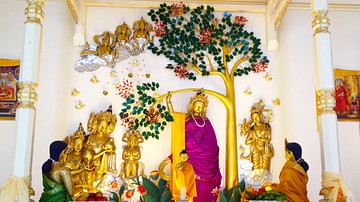
Definition
Buddhism
Buddhism is a non-theistic religion (no belief in a creator god), also considered a philosophy and a moral discipline, originating in the region of modern-day India in the 6th and 5th centuries BCE. It was founded by the sage Siddhartha Gautama...

Definition
Mahayana Buddhism
Mahayana Buddhism is the largest Buddhist sect in the world, and its beliefs and practices are what most non-adherents recognize as "Buddhism" in the modern era. It developed as a school of thought sometime after 383 BCE, possibly from the...
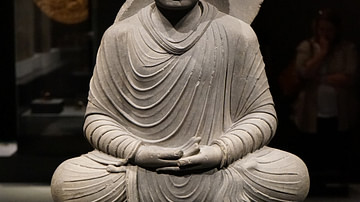
Definition
Four Noble Truths
The Four Noble Truths are the foundational tenets of Buddhism, which spark awareness of suffering as the nature of existence, its cause, and how to live without it. The truths are understood as the realization which led to the enlightenment...
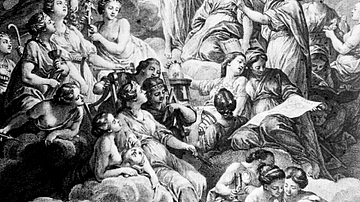
Definition
The Enlightenment
The Enlightenment (Age of Reason) was a revolution in thought in Europe and North America from the late 17th century to the late 18th century. The Enlightenment involved new approaches in philosophy, science, and politics. Above all, the...

Article
Natural Rights & the Enlightenment
The idea of natural rights is the concept used in philosophy and legal studies that a person has certain rights from birth and which, because they were not awarded by a particular state or legal authority, cannot be removed, that is, they...
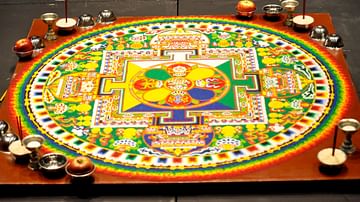
Article
Tibetan Sand Mandalas
Tibetan sand mandalas are works of art created to encourage healing, peace, and purification generally as well as spiritual or psychological focus specifically for those creating and viewing it. A mandala (Sanskrit for "circle") is a geometric...

Article
The Idea of the Sublime in the Enlightenment
During the European Enlightenment, a concept was developed in philosophy and aesthetics called the sublime. In the arts, literature, and the works of intellectuals, the sublime referred to the awe-inspiring capacity of nature and beauty...

Definition
Denis Diderot
Denis Diderot (1713-1784) was a French author and philosopher known for his views which influenced the Enlightenment and his general editorship of the multi-volume Encyclopedia, often described as the 'Bible of the Enlightenment'. Diderot...
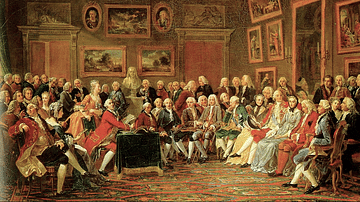
Article
Parisian Salons & the Enlightenment
The salon was a notably French cultural event, a private social gathering where a mixture of guests openly discussed art, literature, philosophy, music, and politics. Salons were particularly but not exclusively associated with Paris and...